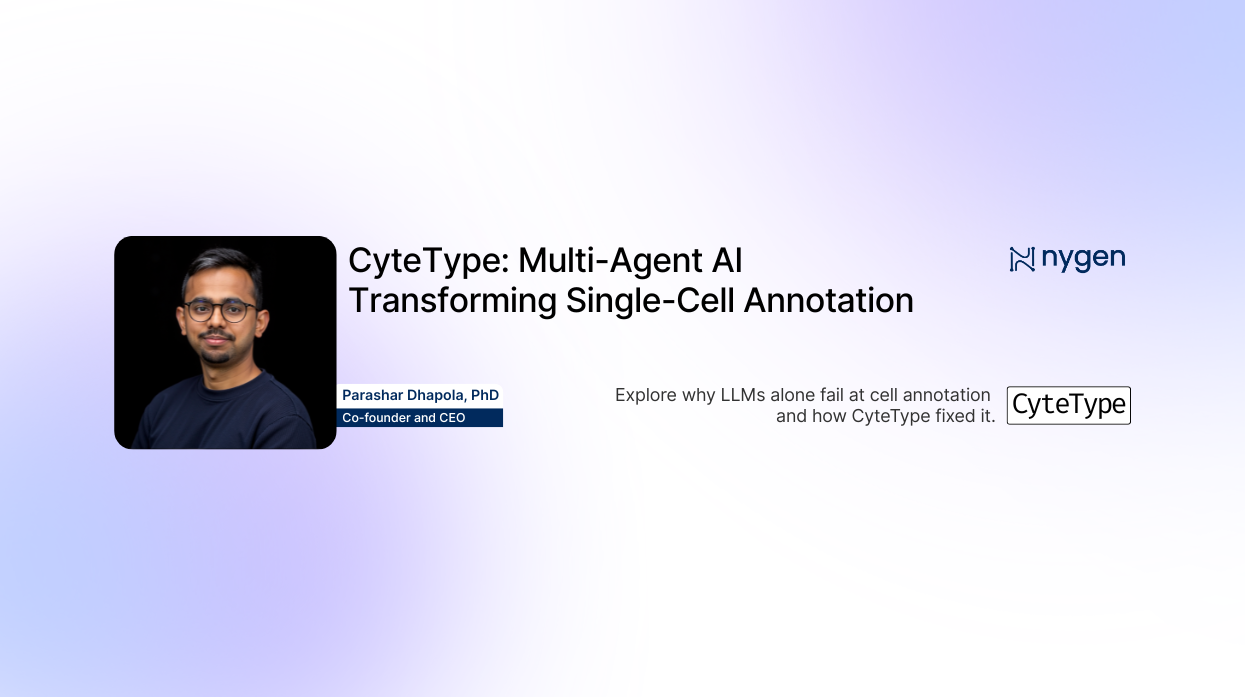
CyteType: Multi-Agent AI Transforming Single-Cell Annotation
Traditional cell annotation relies on partial data and single-model inference. CyteType uses full expression profiles, structured reasoning, and external evidence to deliver reproducible, literature-grounded annotations. This session demonstrates how CyteType achieves 388% higher accuracy than single-LLM approaches.
Why Attend?
• Learn how multi-agent AI outperforms single-LLM methods
• See CyteOnto's solution to the fuzzy label problem in cell annotation
• Watch CyteType's performance across 16 LLMs, from GPT-5 to open-source models
• Live demo: raw data to annotated clusters
What Makes CyteType Different?
• Analyzes full expression profiles, not just top markers
• External database validation for grounded predictions
• Confidence scores that correlate with annotation accuracy
• Detects heterogeneity in mixed populations
• Interactive HTML reports with literature and disease context
• Compatible with Python (AnnData) and R (Seurat)
Validated Performance
• 205 clusters across 4 datasets: outperforms CellTypist, SingleR, GPTCellType
• Strong performance in disease contexts where other methods fail
• 977 clusters across 20 datasets: 41% functional enhancement, 29% subtype refinement
Who Should Attend?
• Computational biologists analyzing scRNA-seq data
• Bioinformaticians in academic and pharmaceutical settings
• Researchers working with disease and tumor samples
• Scientists seeking improved annotation accuracy and interpretability
Is CyteType Free?
Nygen covers API costs with a rate limit of 3 annotation runs per day. If you bring your own LLM key or use locally hosted models, no rate limits apply. Note that standard API keys will require reducing concurrency from the default 20 to approximately 5 clusters due to provider rate limits. Nygen's enterprise agreements enable higher throughput, but standard keys hit rate limits quickly at 20 concurrent clusters.
*CyteType requires licensing for commercial use.

